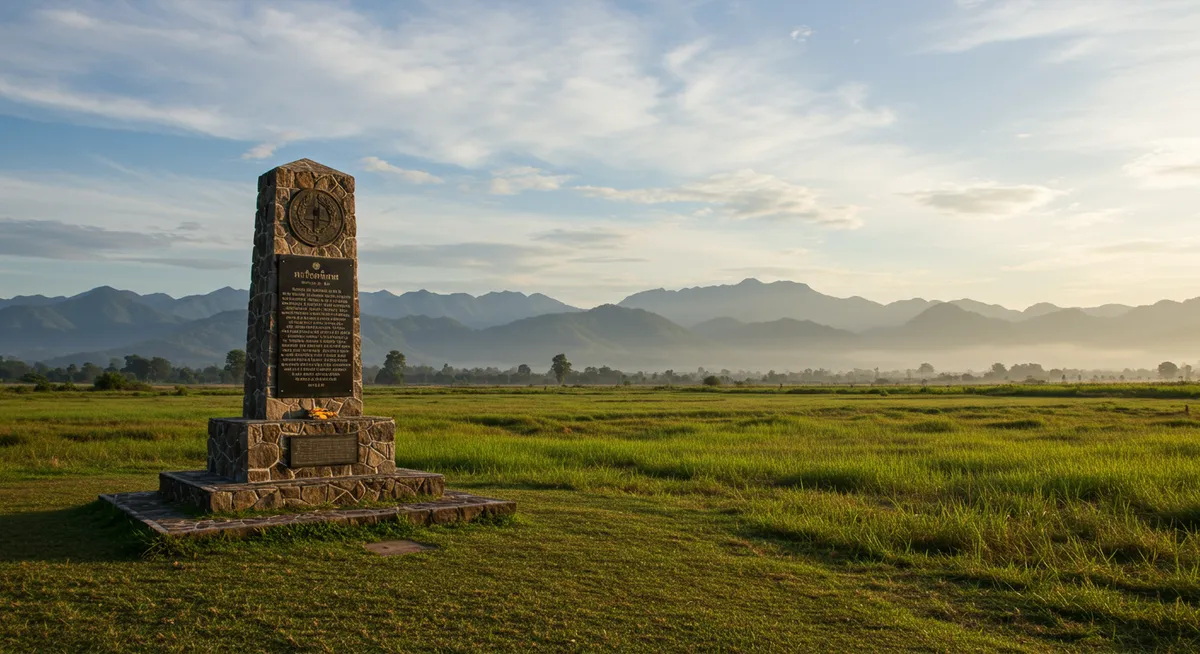
Hellfire Pass Memorial Museum Visiting Guide
Table of Contents
Want to find the best travel deals for this destination? Chat with our travel hacking specialist!
Get Travel HacksCategory: hellfire-pass-memorial-museum-visiting-guide
Explore Hellfire Pass Memorial Museum: A Comprehensive Guide
Having spent considerable time exploring the historical depths of Kanchanaburi, I've come to understand that few places convey the profound sacrifices of World War II as powerfully as the Hellfire Pass Memorial Museum. This site, a solemn tribute to the Allied Prisoners of War and Asian laborers forced to build the Burma Railway, offers a poignant glimpse into a dark chapter of human history. This comprehensive Hellfire Pass Memorial Museum visiting guide is designed to help you prepare for a respectful and insightful journey to this unforgettable location, ensuring you grasp its immense significance.
Understanding Hellfire Pass: Its Deep Significance
Hellfire Pass, or Konyu Cutting, represents one of the most brutal sections of the 'Death Railway' constructed during World War II. Thousands of Allied Prisoners of War (POWs) and Asian laborers endured horrific conditions, starvation, and disease while carving this railway through solid rock. The museum serves as a powerful memorial, honoring their immense suffering and ultimate sacrifice. It’s a truly humbling experience to walk through the cutting, feeling the weight of history in every stone. My personal tip: take a moment for quiet reflection; the solemn atmosphere is palpable and deserves profound respect for all who perished here.
Planning Your Visit: Essentials for Hellfire Pass
To make the most of your Hellfire Pass Memorial Museum visiting guide, plan ahead. The museum and memorial are open daily from 9:00 AM to 4:00 PM, and entry is completely free, though donations are welcome. Crucially, wear comfortable walking shoes and light clothing, as the Kanchanaburi heat can be intense, especially if you plan to walk the entire trail. Bring plenty of water and sun protection. For the best experience, try to arrive early in the morning before the main crowds, allowing for a more reflective and personal exploration. Consider combining your visit with other historical sites listed in our Kanchanaburi travel guide.
Exploring the Museum and Walking Trail
Your visit begins at the Hellfire Pass Memorial Museum, which features detailed exhibits, historical artifacts, and moving personal accounts. A free audio guide, narrated by veterans who worked on the railway, is available and absolutely essential for understanding the brutality and context of the site; I highly recommend it. From the museum, a well-maintained walking trail leads you into the actual cutting, allowing you to walk through the same terrain endured by the POWs. This poignant experience along the original 'Death Railway' path is central to the Hellfire Pass visiting guide, revealing the immense human cost.
Getting There: How to Reach Hellfire Pass from Kanchanaburi
Reaching Hellfire Pass, located about 80 kilometers northwest of Kanchanaburi city, requires some planning. The most common options include hiring a private taxi or a songthaew (a shared pickup truck taxi). Alternatively, many visitors opt for organized tours that often include other Kanchanaburi attractions, offering convenience and historical insights. Public buses are also an option, albeit less direct. For those considering a more extensive trip, understanding how to get to Kanchanaburi from Bangkok is a good first step, then arranging local transport to the memorial. Regardless of your chosen method, the journey is certainly worthwhile.
Frequently Asked Questions
Is Hellfire Pass Memorial Museum free to enter?
How much time should I allocate for Hellfire Pass?
Is the walking trail at Hellfire Pass difficult?
Visiting the Hellfire Pass Memorial Museum is more than just a trip; it's a powerful educational and deeply moving experience that anchors you to a pivotal moment in history. This Hellfire Pass Memorial Museum visiting guide aims to prepare you for a respectful journey, allowing you to honor the memory of those who suffered and died building the Death Railway. The insights gained here are invaluable. We encourage you to delve deeper into Kanchanaburi's rich history and explore its other significant sites to truly grasp the region's compelling narrative.